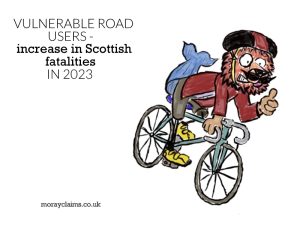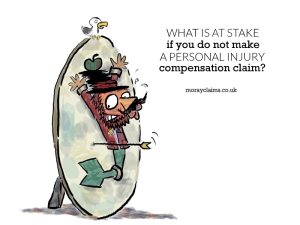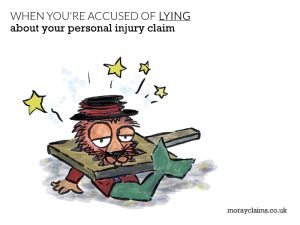Recently-released statistics have shown that as compared with 2022, 2023 saw a reduction in the overall number of deaths on Scotland’s roads. This is good news. However, lurking within these statistics, there was, unfortunately, an increase in deaths within the sub-category for vulnerable road users. Vulnerable road users include motorcyclists, pedal cyclists and pedestrians. The figures for serious injuries within each of these subcategories also showed an increase as between 2022 and 2023. The indications are that, for car users, road safety levels continued to improve. But if you are walking or travelling on two wheels, it is more of a bleak picture. Given that we are all being encouraged to engage in more active forms of travel (e.g. walking and pedal cycling), the signs are that the Government is going to need to do more to reassure the public that proper safety measures are being put in place (e.g. separated-from-carriageway active travel routes such as Continue Reading
What is at stake if you do not make a personal injury compensation claim?
What do you stand to lose if you do not make a claim for personal injury compensation in a situation where that would be a realistic option for you? In this article, we will consider 3 ways you can lose out if you don't make a personal injury claim. The general principles here may be obvious but probably not all of the details will be known to you already. Knowing these things is an important part of your "informed consent" - i.e. having all the relevant points to hand before making your decision: to claim or not to claim. Firstly, we will look at your “loss” due to your failure to give yourself the benefit of monetary compensation. In fact, that loss does not just apply to you; it can apply to others who would have to rely on you making a claim in order for them to be compensated as well. Secondly, we will discuss the fact that you only have the choice to make a personal injury compensation claim for a limited period of time. The right does not last forever. Once the right Continue Reading
When you are accused of lying about your personal injury claim
Traditionally, age brings with it wisdom – and the respect of others. But what if you’re 84 years old and you’re accused of telling lies "in court"? It's one thing to exaggerate, for example, medical symptoms caused by an accident - but to invent them? Here's an anonymised true story of a case we dealt with and how a scenario of that nature played out in practice. Our client was injured after she fell into an excavation that had been made by a national utilities company. It was right outside her garden gate. There were no warning signs in place. Our client had a registered sight impairment. She opened her gate, minding her own business, took one step and suddenly down she went. After her accident, the utilities company covered the trench with hard plastic matting so it was impossible for pedestrians to fall in. If they had done that before the accident, it could not have happened. We alleged that the utilities company had been negligent and that had caused our Continue Reading
When it can be your fault for driving through a green light
You’re in a rush. It’s a dark, wet Monday morning in January. You want to cross the main road on foot at traffic lights, using the pedestrian crossing there; but the lights are green for vehicles - and red for you to cross. On the approach to the traffic lights for vehicles, there are two bus stops. It’s a predominantly residential area. You decide you have to risk crossing on red. Dashing onto the crossing, you suddenly realise an approaching car is bearing down on you. It’s about 5m away and travelling close to the speed limit of 30mph. Your brain freezes with panic. You've misjudged the speed of the oncoming vehicle. You’re rooted to the spot. Paralysed with fear. It's too late to get out of the way. Though the car driver instinctively swerves to avoid you, having only noticed you late, the collision is inevitable. The impact throws you up onto the bonnet. Your head hits the nearside windscreen, causing a “bullseye” break in the glass - i.e. a spider’s web-like Continue Reading



